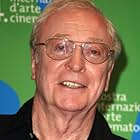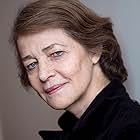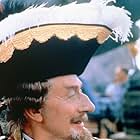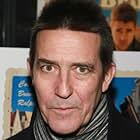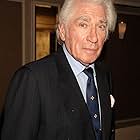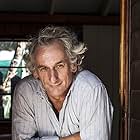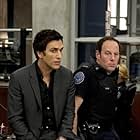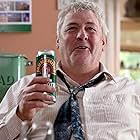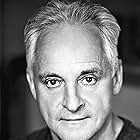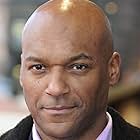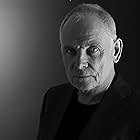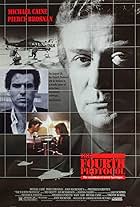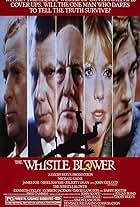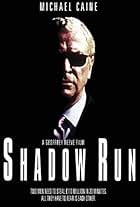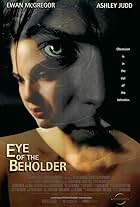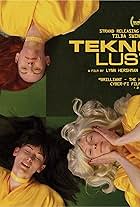IMDb RATING
6.2/10
5.7K
YOUR RATING
Tale of a former Nazi executioner who becomes a target of hitmen and police investigators.Tale of a former Nazi executioner who becomes a target of hitmen and police investigators.Tale of a former Nazi executioner who becomes a target of hitmen and police investigators.
- Awards
- 4 wins
David de Keyser
- Dom André
- (as David De Keyser)
- Director
- Writers
- All cast & crew
- Production, box office & more at IMDbPro
Storyline
Did you know
- TriviaAs of April 2019, this is producer and director Norman Jewison's last movie.
- GoofsWhen Brossard searches the killer's wallet, we can see 500 francs banknotes with the head of Pierre and Marie Curie. This kind of banknote was released in 1994 and the action takes place in April 1992.
- Quotes
Pierre Brossard: Pray that we meet again... in this world.
- ConnectionsFeatures Only You (1994)
- SoundtracksLe Chemin des Forains
Music by Henri Sauguet
Lyrics by Jean Dréjac
Performed by Baguette Quartette
Published by G. Schirmer Inc., administered by Music Sales Corporation
Courtesy of Baguette Quartette
Featured review
Your comments will be displayed as follows: A good adaptation of Brian Moore's thriller novel, director Norman Jewison's "The Statement" has its ups and downs.
Michael Caine, who has played many English roles as well as being an American abortion providing doctor, now takes on elderly Frenchman Pierre Brossard, once a shining star of the toady Vichy police force without which the Nazis could never have murdered some 77,000 French Jews. A small percentage of the Holocaust toll but not an unimportant one. Among other acts he participated in the roundup and murder of seven Jews. Such an incident was the basis for the novel.
A man who may belong to a Jewish revanchist organization is killed by Brossard before he can shoot the wheezing, cardiac condition-afflicted former right-hand helpmate for the SS. He's been sheltered for forty years by members of the Catholic clergy.
Tilda Swinton is Judge Levy assigned along with Jeremy Northam, a French army colonel, to find and bring Brossard to trial based on a new law reviving prosecutions against those who committed crimes against humanity. Actually, every important actor in this film except for Charlotte Rampling, who has a small role as Brossard's wife, is English. I'm surprised the French actors' union didn't raise a stink.
This is a chase film with Judge Levy and her colonel either warm or hot on the trail of Brossard who goes from monastery to monastery receiving food, money and help. (In France a judge has vast investigative authority and can and does direct inquiries so the director could credibly have Swinton going from city to city. Imagine Judge Judy flitting about in a chopper ferreting out facts.) At times I thought I was watching a travelogue about the abbeys of Gaul.
There are, of course, hints of a dark conspiracy reaching beyond the Church that I won't reveal.
Caine's peripatetic suspect is deeply religious in the formulaic sense that absolution and ritual salve his conscience but in no way mediate his actions. Caine plays a dirtbag to perfection.
Possibly to avoid charges that the film is unfairly anti-Catholic we're told that
1) the Church is vast, has many subordinate bodies, and those at the top just can't know all that is happening (this defense comes from a gentle librarian-Jesuit priest who also happens to be black, the predominant racial group in the French church).
2) responsibility for aiding genocide by clerics was individual so don't trot out any revisionist Hochhuth/Cornwell/Goldenhagen theories arraigning the Church's leadership.
3) we can't forget that the Resistance was largely communist so maybe there's a rational justification for Vichy's supine collaboration and the very real clerical support for the Nazis if not for every French assisted atrocity.
I despise the mindless Francophobic reaction to France's lack of support for U.S. policy on Iraq. But for too long Vichy and its spineless leaders, Petain and Laval, never mentioned in the film, have gotten a bit of a free ride. So I was happy to see Brossard made frightened as his pursuers close in.
Enjoyable, some nice scenery. Not much more except that Michael Caine is always terrific. And so is Tilda Swinton who brings focused intensity to Judge Levy's unyielding crusade for justice, for that it is.
6/10.
Michael Caine, who has played many English roles as well as being an American abortion providing doctor, now takes on elderly Frenchman Pierre Brossard, once a shining star of the toady Vichy police force without which the Nazis could never have murdered some 77,000 French Jews. A small percentage of the Holocaust toll but not an unimportant one. Among other acts he participated in the roundup and murder of seven Jews. Such an incident was the basis for the novel.
A man who may belong to a Jewish revanchist organization is killed by Brossard before he can shoot the wheezing, cardiac condition-afflicted former right-hand helpmate for the SS. He's been sheltered for forty years by members of the Catholic clergy.
Tilda Swinton is Judge Levy assigned along with Jeremy Northam, a French army colonel, to find and bring Brossard to trial based on a new law reviving prosecutions against those who committed crimes against humanity. Actually, every important actor in this film except for Charlotte Rampling, who has a small role as Brossard's wife, is English. I'm surprised the French actors' union didn't raise a stink.
This is a chase film with Judge Levy and her colonel either warm or hot on the trail of Brossard who goes from monastery to monastery receiving food, money and help. (In France a judge has vast investigative authority and can and does direct inquiries so the director could credibly have Swinton going from city to city. Imagine Judge Judy flitting about in a chopper ferreting out facts.) At times I thought I was watching a travelogue about the abbeys of Gaul.
There are, of course, hints of a dark conspiracy reaching beyond the Church that I won't reveal.
Caine's peripatetic suspect is deeply religious in the formulaic sense that absolution and ritual salve his conscience but in no way mediate his actions. Caine plays a dirtbag to perfection.
Possibly to avoid charges that the film is unfairly anti-Catholic we're told that
1) the Church is vast, has many subordinate bodies, and those at the top just can't know all that is happening (this defense comes from a gentle librarian-Jesuit priest who also happens to be black, the predominant racial group in the French church).
2) responsibility for aiding genocide by clerics was individual so don't trot out any revisionist Hochhuth/Cornwell/Goldenhagen theories arraigning the Church's leadership.
3) we can't forget that the Resistance was largely communist so maybe there's a rational justification for Vichy's supine collaboration and the very real clerical support for the Nazis if not for every French assisted atrocity.
I despise the mindless Francophobic reaction to France's lack of support for U.S. policy on Iraq. But for too long Vichy and its spineless leaders, Petain and Laval, never mentioned in the film, have gotten a bit of a free ride. So I was happy to see Brossard made frightened as his pursuers close in.
Enjoyable, some nice scenery. Not much more except that Michael Caine is always terrific. And so is Tilda Swinton who brings focused intensity to Judge Levy's unyielding crusade for justice, for that it is.
6/10.
- How long is The Statement?Powered by Alexa
Details
- Release date
- Countries of origin
- Official site
- Languages
- Also known as
- İnsanlık suçu
- Filming locations
- Production companies
- See more company credits at IMDbPro
Box office
- Budget
- $27,000,000 (estimated)
- Gross US & Canada
- $765,637
- Opening weekend US & Canada
- $37,220
- Dec 14, 2003
- Gross worldwide
- $1,079,822
- Runtime2 hours
- Color
- Sound mix
- Aspect ratio
- 1.85 : 1
Contribute to this page
Suggest an edit or add missing content











